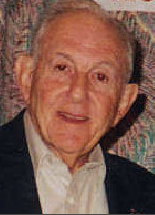Providence College honors ‘Lost Class of 44’ pulled from school to fight war
By G. Wayne Miller
Journal Staff Writer
“As soon as Pearl Harbor happened,” George Fisher, 86, said, “I enlisted in the Army.” It was December 1941. The Army sent him to Providence College for officer training –– and then sent him off to battle before he could earn his degree. On Sunday, that will be rectified when the school awards honorary bachelor’s degrees to him and others in what came to be known as “the Lost Class of ’44.” Fisher, the only member of the class who can make it, tells the story from his home in Palm Beach, Fla.
Military testing after his enrollment, he says, qualified him for the Army Specialized Training Program (ASPT), which entitled a soldier to a college education –– and eventual service in a postwar world in which the Axis had been defeated, or so the young men were promised. “I would come out an officer and help rebuild Europe,” Fisher remembers.
A native of Brooklyn, N.Y., Fisher and nearly 400 other young men were assigned to Unit No. 1188 and sent to PC, in summer 1943. “It was a great life,” Fisher said. “We went to classes all day and studied all night, and we got weekend passes every weekend. It was a wonderful way to spend the war.” Until one day in March 1944, Fisher says.
As the invasion of Normandy loomed, the Army determined it would need its student-soldiers for the conquest of Europe, not what came after. And so college ended for Fisher and friends, without a degree. At 3 a.m. on a day in March 1944, Fisher says, he and his fellow ASTP members were roused from their beds in a PC dorm. “I remember it like yesterday,” Fisher said. Pack your gear, you’re leaving, he was told. “I said, ‘I can’t, I have a test tomorrow.’ He said, ‘You’re going. You can leave your books behind.’ They marched us down to the train station and put us on a windowless train. This was during the war. No one knew where we were going.”
They were going to advanced training, in Tennessee and South Carolina, and then to the 328th Infantry Regiment of the 26th Yankee Division, which landed on Omaha Beach in September 1944, three months after D-Day. “About 30 days later, in October, they trucked us up to the front lines. All of a sudden, I found the Germans were trying to kill me. I realized what combat was all about. We were college kids, don’t forget. This wasn’t our future. We weren’t planning on this.”
As part of Gen. George S. Patton’s legendary Third Army, Fisher and his comrades participated in the Battle of the Bulge, which began in December 1944 and would prove decisive in the defeat of Nazi Germany –– and exceptionally costly, with more than 19,000 American lives lost and more than 47,000 wounded.
Fisher was among the wounded. On Jan. 3, 1945, he said, during an attack on a village in Luxembourg, “a piece of shrapnel tore through my leg and for me, the war was over.” He spent months in hospitals and was discharged in August 1945, when the war finally ended, wearing a Bronze Star, Purple Heart and a Combat Infantry Badge. He was one of the lucky ones: 37 members of the Lost Class of ’44 were killed in action.
Back home, Fisher earned a bachelor’s degree from Brooklyn College, in 1947, and began a career in residential and commercial real estate brokering and management in Manhattan. Retired now with a summer home on Long Island, he and his wife, Annette, recently celebrated their 64th wedding anniversary. They have two sons.
In awarding his honorary degree, PC will cite the contributions Fisher and the others in the Lost Class made to their country. “Your steadfast service helped secure the Allied Victory and you returned home to begin the most ambitious and transformational chapter in American history,” the college will proclaim. “You married your sweethearts, started families, built homes and communities, created jobs and fueled the limitless American Dream.
“Today, as the children, grandchildren and great-grandchildren of this Greatest Generation, we are awed by your accomplishments and inspired by the faith and dignity you personify. Humbled by your profound sense of duty and service, we are deeply grateful for the example you have given us.”
Fisher said he is the only one of the Lost Class who will be present during PC’s Sunday commencement exercises. Some 75 of his friends attended a reunion in 1998, he said, “but 13 years takes a long toll on guys our age.”
He is grateful for health that still permits him to travel. “I think it’s a wonderful thing Providence College is doing,” he said. “It will be a very emotional weekend for me. I’m more or less the last man standing up there.”Sunday’s graduations:
